- News
- Reviews
- Bikes
- Accessories
- Accessories - misc
- Computer mounts
- Bags
- Bar ends
- Bike bags & cases
- Bottle cages
- Bottles
- Cameras
- Car racks
- Child seats
- Computers
- Glasses
- GPS units
- Helmets
- Lights - front
- Lights - rear
- Lights - sets
- Locks
- Mirrors
- Mudguards
- Racks
- Pumps & CO2 inflators
- Puncture kits
- Reflectives
- Smart watches
- Stands and racks
- Trailers
- Clothing
- Components
- Bar tape & grips
- Bottom brackets
- Brake & gear cables
- Brake & STI levers
- Brake pads & spares
- Brakes
- Cassettes & freewheels
- Chains
- Chainsets & chainrings
- Derailleurs - front
- Derailleurs - rear
- Forks
- Gear levers & shifters
- Groupsets
- Handlebars & extensions
- Headsets
- Hubs
- Inner tubes
- Pedals
- Quick releases & skewers
- Saddles
- Seatposts
- Stems
- Wheels
- Tyres
- Health, fitness and nutrition
- Tools and workshop
- Miscellaneous
- Buyers Guides
- Features
- Forum
- Recommends
- Podcast
review
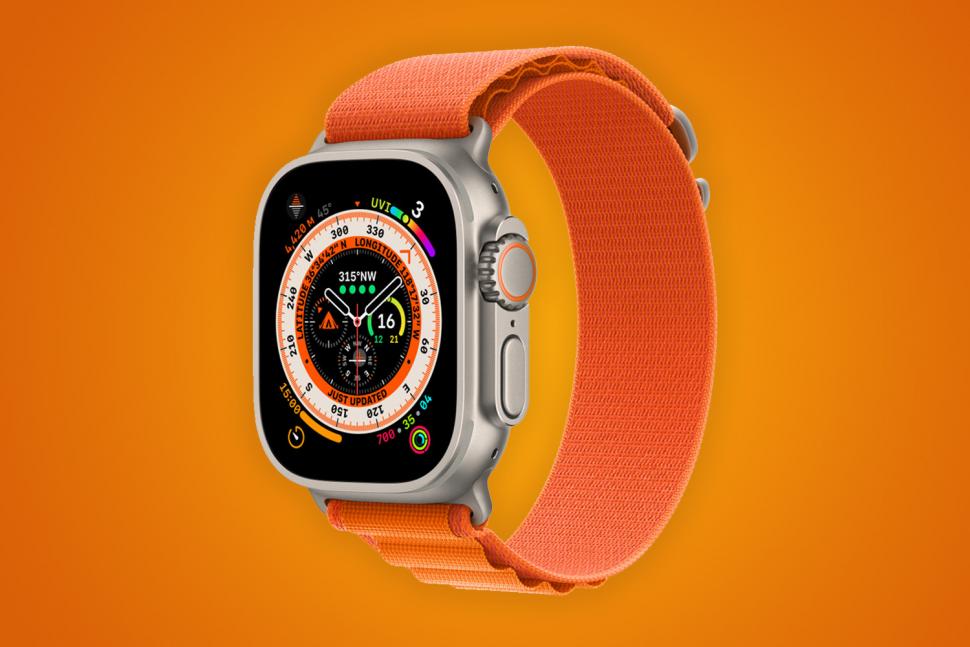 Apple Watch Ultra
Apple Watch Ultra£849.00
VERDICT:
Impressive entry into the more extreme end of the smartwatch market
Much improved battery life over Series 7
Action button is a great addition
Strap gets grubby easily
Can set off the buttons by mistake
Weight:
75g
Contact:
At road.cc every product is thoroughly tested for as long as it takes to get a proper insight into how well it works. Our reviewers are experienced cyclists that we trust to be objective. While we strive to ensure that opinions expressed are backed up by facts, reviews are by their nature an informed opinion, not a definitive verdict. We don't intentionally try to break anything (except locks) but we do try to look for weak points in any design. The overall score is not just an average of the other scores: it reflects both a product's function and value – with value determined by how a product compares with items of similar spec, quality, and price.
What the road.cc scores meanGood scores are more common than bad, because fortunately good products are more common than bad.
- Exceptional
- Excellent
- Very Good
- Good
- Quite good
- Average
- Not so good
- Poor
- Bad
- Appalling
The Apple Watch Ultra takes many of the features of the Series 7 that I reviewed last year and amplifies them. The battery life is much improved, the screen is larger and crisper, and the functionality seems much more accurate than its predecessor. The only thing I'm not enamoured with is the strap, which gets grubby easily.
Setup, operation & tracking
Setting up the Ultra is the same process as with any of the older generations of Apple Watch. I set it up through the Watch app on my iPhone 13 Pro; I could either set it up as a new watch or just copy across everything I had set up from my old watch.
On an iPhone it's intuitive and easy; it can be paired with Android phones, but loses a lot of functionality and the setup is nowhere near as simple. It's not a watch I would recommend using if you have an Android phone, but I'm an iPhone user and so will make my assessments based on that.
One of the issues I had with the previous Apple Watch was that it took a while for the auto-detection to kick in – it could be five minutes or so before it realised I'd started a ride. You could quite easily miss a mile or so of your ride if you hadn't set it to run manually when you started.
Auto-detection appears to be much quicker with the Ultra, picking up that I am riding before I hit the end of my road. I have moved house, which might have something to do with it, but it is noticeably more responsive.
It's also much easier to start an activity, using the Action button on the left of the watch. This can be set to start a workout of your choice – in my case, when I press it, it starts tracking a ride. With the previous Apple Watch I would have to go through several menus in order to find the correct cycling workout, then start it. Here, all it takes is a single click of a button.
Apple has also added a larger 'crown', which is what you use to control multiple elements of the watch, from pressing it to open the menu, through to setting timers or changing the volume on a podcast. The grooves on the crown are also bigger and deeper, the idea being to make it easier to use with full-finger gloves. It is definitely easier to use with winter gear on in this sense, especially with the Action button.
However, I did frequently turn things on or off my mistake, especially when I was wearing larger gloves and the watch was under a long sleeve jersey. A few times I even managed to soft reset it by mistake.
To stop this happening I ended up wearing it higher up my wrist than usual, which wasn't too much of an issue in practice, as it stays in place well, but a bit of an irritant.
Apple has included its most powerful GPS antenna to date – recorded routes are mapped accurately at the end of the ride, and you also get more accurate instructions when using turn-by-turn navigation. GPS tracking and turn-by-turn didn't cause any issues at all – not that I had any problems in this regard with the previous Apple Watch either.
Size & weight
The Apple Watch Ultra is strikingly different in appearance to a regular Apple Watch, with a noticeably larger face and bigger body. Initially I thought it could be annoying to wear, but in reality it looks great and it doesn't feel like your wrist is being weighed down.
At 75g it's actually a reasonable weight for a watch of this size, something Apple has achieved by making the entire body, besides the optical sensors on the back, from titanium rather than the aluminium of the regular watch.
It's just 7g more than the Garmin epix that Matt reviewed, and 10g less than the Garmin Fenix 6.
You wouldn't call it a lightweight smartwatch, and it is 7g heavier than the series 7 I reviewed, but the difference is more in the size, really – it's not something that feels heavy on your wrist.
Strap
Apple has also introduced a new strap – the Alpine Loop – for the Ultra, in a choice of three colours: Starlight (off-white), green, and the lovely burnt orange you can see here. They also come in three sizes – small (for 130-160mm wrists), medium (145-190mm wrists) and large (165-210mm wrists).
It's a bracelet style strap that doubles back and hooks into a loop on the outside, so you can adjust it once you've slid your hand through. It's very secure on the wrist, and even if the hook were to come undone (though I can't see how it would in most situations, and it never happened to me) it would still need to slide off over your hand.
The strap is made from a nylon material that's comfortable but can pick up dirt quite easily, which can seep into the material and leave marks, unlike the silicone bands on the previous watches. This might be less of an issue on a darker strap, but the orange loop was noticeably grubby.
Luckily, the original straps also fit, and after a few weeks I switched back to a silicone band.
Health tracking and general fitness
Given that this is essentially Apple's eighth bite at the fitness watch cherry, it's no surprise that heart rate tracking is very good. I compared it with the previous Apple Watch and a chest strap HR monitor and found there was parity between them. It doesn't pick up sudden changes quite as quickly as a chest strap HRM, but it's at your wrist, so it's not surprising, and it's normally matching again within a couple of seconds. (We have a guide to the best heart rate monitors, which looks at various types.)
It can also track your VO2 rate and perform basic ECG testing too, if you want to make sure your ticker is running properly. Without more complex scientific equipment I can't validate the accuracy of these tests, but they seem to work fine and will at least give you some indication of changes.
It tracks fitness and movement in the same way as the other Apple watches, via the 'rings' that fill based on the exercise you have completed that day, the amount of movement you've done, and the number of hours you've stood up. These are all customisable, so you can set yourself different targets based on a training plan, or if you want to take it a little easier, for instance. They work well, and not only in accuracy – the gamification element seems to really drive you on to achieve the goals you set.
Multiple sports
The Watch OS 9 update that coincided with the release of the Ultra includes the ability to track multiple sports, which is basically just a fancy way of saying 'triathlons'. It allows you to track transitions and your performances during different sections of the triathlon.
My knees don't really let me do any running, and my swimming style is closer to a stone than a salmon, so I didn't really use this, but it's there if you are that way inclined.
This makes it comparable to the Wahoo Elemnt Rival Multisport GPS Watch that Mat tested last year.
Convenience
The Ultra includes all of the convenient features that have made the Apple Watch a piece of technology I haven't wanted to leave the house without for the last few years. If I do forget it, I will turn back for it – a fairly accurate test of how useful a piece of technology is to your daily life.
It's mainly down to the integrated nature of the Apple ecosystem, but it shows me all my notifications, sends me alerts, and even automatically unlocks my computers for me.
Durability
As you might expect from a watch designed for extreme sports, it is more durable than the regular Apple Watch, with some neat features to help.
First there's the titanium body, which is naturally robust and doesn't appear to scratch particularly easily.
Secondly, the glass used is scratch resistant, and unlike on the Series 7 and 8 watches it sits just below the edges of the case, which prevents you scratching it if you scrape your wrist against something. I've been doing a lot of DIY lately, which has historically been a scratch-fest for my watches, but this remains unscathed – nothing to do with cycling, but a good indication of its durability.
Battery life
Battery life is a marked improvement over the Series 7, lasting around two and a half days for me compared with around a day for my previous Apple watches. This doesn't come close to the kind of battery life you get on the Garmin epix, which is about five days according to Matt.
Apple claims a battery life of 36 hours, but I've actually had over 40; when I've put it on charge every second night it would routinely still have 25-30% left.
You can also set it to a power saving mode, which gives you a claimed 60-hour run-time, although you do lose some functionality as a consequence.
Value
At £849 it is an expensive watch, but it's not unreasonable when you compare it with other high-end sports smartwatches.
For instance, the Garmin Fenix 7X Sapphire Solar Edition is £859.99, and the Garmin epix (Gen 2) that Matt tested last year is £899.
Conclusion
The Apple Watch Ultra is impressive, and sorts many of the limitations of the regular Apple Watch such as the raised screen, the difficulty in starting activities, and the one-day battery life. There are some slight annoyances, such as being able to set off the buttons by mistake if I position it where I would normally wear a watch, and how easily the orange strap seems to pick up dirt and stains, but these are relatively easily remedied. Other than that, there isn't much not to like here – as long as you can stomach the cost.
Verdict
Impressive entry into the more extreme end of the smartwatch market
If you're thinking of buying this product using a cashback deal why not use the road.cc Top Cashback page and get some top cashback while helping to support your favourite independent cycling website
road.cc test report
Make and model: Apple Watch Ultra
Size tested: n/a
Tell us what the product is for and who it's aimed at. What do the manufacturers say about it? How does that compare to your own feelings about it?
Apple says: "Meet the most rugged and capable Apple Watch ever. With a robust titanium case, precision dual-frequency GPS, up to 36 hours of battery life, the freedom of cellular, and three specialised straps made for athletes and adventurers of all kinds."
Tell us some more about the technical aspects of the product?
Apple lists:
Swimproof
IP6X dust resistant
MIL-STD 810H certification
Action button
Always-On Retina display
Up to 2,000 nits
Blood Oxygen app
ECG app
High and low heart rate notifications
Irregular heart rhythm notification
Temperature sensing
Cycle tracking with retrospective ovulation estimates
Emergency SOS
International emergency calling
Fall Detection
Crash Detection
86-decibel siren to attract attention
Cellular
Family Setup - pair multiple watches with one iPhone
Rate the product for quality of construction:
9/10
Very well made. I have used this in some pretty 'scratchy' situations and it's come away without a scratch.
Rate the product for performance:
8/10
Does very well, tracks accurately, and is easy to see visualisations on the screen while on the go.
Rate the product for durability:
9/10
It is impressive – with the addition of the titanium casing combined with the slightly raised surrounds, it makes it Apple's most durable watch to date.
Rate the product for weight (if applicable)
7/10
It is a little heavier than the standard Apple watch and some smartwatches, but only a few grams, and not surprising given the increased size.
Rate the product for comfort (if applicable)
7/10
It sits nicely on the wrist and doesn't feel like it's weighing you down.
Rate the product for value:
5/10
It's a high price, but similar to competitors from Garmin.
Tell us how the product performed overall when used for its designed purpose
It is a very good smartwatch, combining the user experience and convenience of an Apple design with Garmin-like ruggedness and accurate tracking.
Tell us what you particularly liked about the product
The screen is much brighter and bigger than the previous model – making it very easy to see on the go.
Tell us what you particularly disliked about the product
The strap picks up dirt much too easily.
How does the price compare to that of similar products in the market, including ones recently tested on road.cc?
It is an expensive watch, but is reasonably priced when you compare it with other high-end sports smartwatches in 2022. For instance, the Garmin Fenix 7X Sapphire Solar Edition is £859.99, and the Garmin epix (Gen 2) is £899.
Did you enjoy using the product? Yes
Would you consider buying the product? Yes
Would you recommend the product to a friend? Yes
Use this box to explain your overall score
Even though this is technically 'another Apple Watch', in reality it feels more like a direct threat to Garmin's dominance in the extreme performance smartwatch market, and it seems like a worthy adversary.
It's really simple and easy to use, as you would expect from Apple, the tracking is excellent, and it sits nicely on the wrist. The new features of the watch when used in combination with the new Watch OS are also a real positive.
About the tester
Age: 35
I usually ride: CAAD13 My best bike is: Cannondale Supersix Evo
I've been riding for: 10-20 years I ride: Every day I would class myself as: Expert
I regularly do the following types of riding: commuting, club rides, sportives, general fitness riding, fixed/singlespeed,
George is the host of the road.cc podcast and has been writing for road.cc since 2014. He has reviewed everything from a saddle with a shark fin through to a set of glasses with a HUD and everything in between.
Although, ironically, spending more time writing and talking about cycling than on the bike nowadays, he still manages to do a couple of decent rides every week on his ever changing number of bikes.
Latest Comments
- don simon fbpe 21 min 23 sec ago
Who'd've thought that a certain whinging section (right whingers get uppity for calling them what they are) of society would resort to division,...
- Smoggysteve 24 min ago
Sorry, I don't buy the argument about large cars. I drive an Audi Q5, a car I bought purely due to my partner having a disability. It's easy to...
- Exup 1 hour 53 min ago
At least some justice is being done........
- BIRMINGHAMisaDUMP 2 hours 3 min ago
I imagine the Police treat bike theft as an insurance issue rather than a criminal issue. Can't blame them to be honest. The best thing is to use...
- David9694 2 hours 30 min ago
Police launch investigation into destruction of barber shop in Hythe High Street...
- ktache 11 hours 24 sec ago
I'd love for them to put a number on that "inappropriate speed"
- Nick T 11 hours 53 min ago
They need to use some harder material for the cleat retention clip really, that's worn out long before any bearing has had a chance to fail on...
- yiipeeia 14 hours 43 min ago
I am 67 and I cycle with two groups during the year The Haddenham Easyriders International who ride during the summer on Thursday evenings, and The...
- don simon fbpe 14 hours 54 min ago
Brexit is a wholly selfish act....








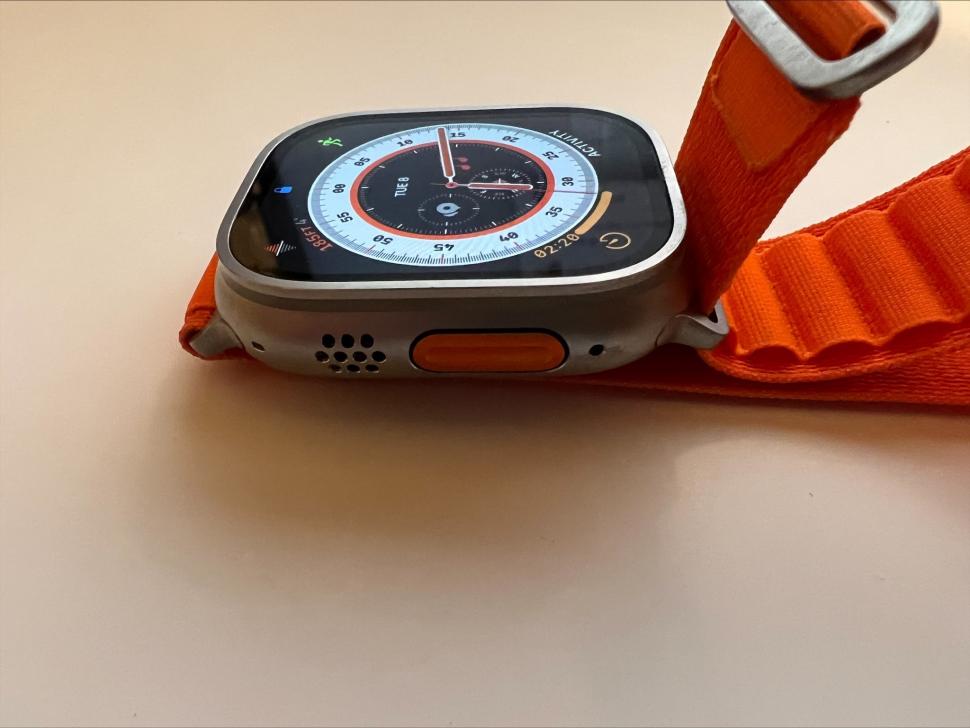
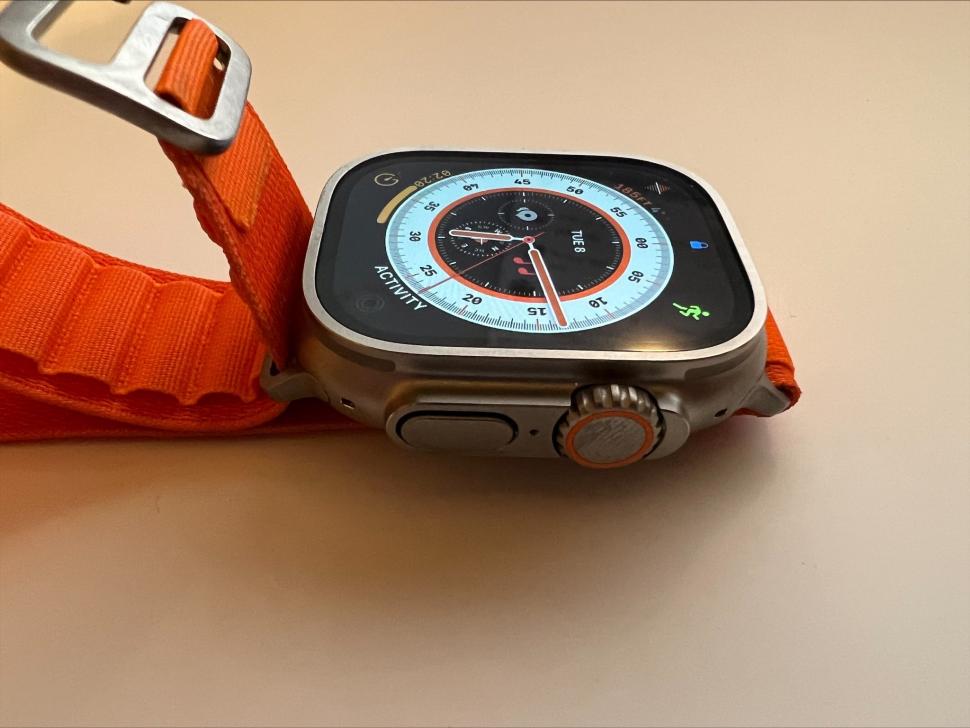

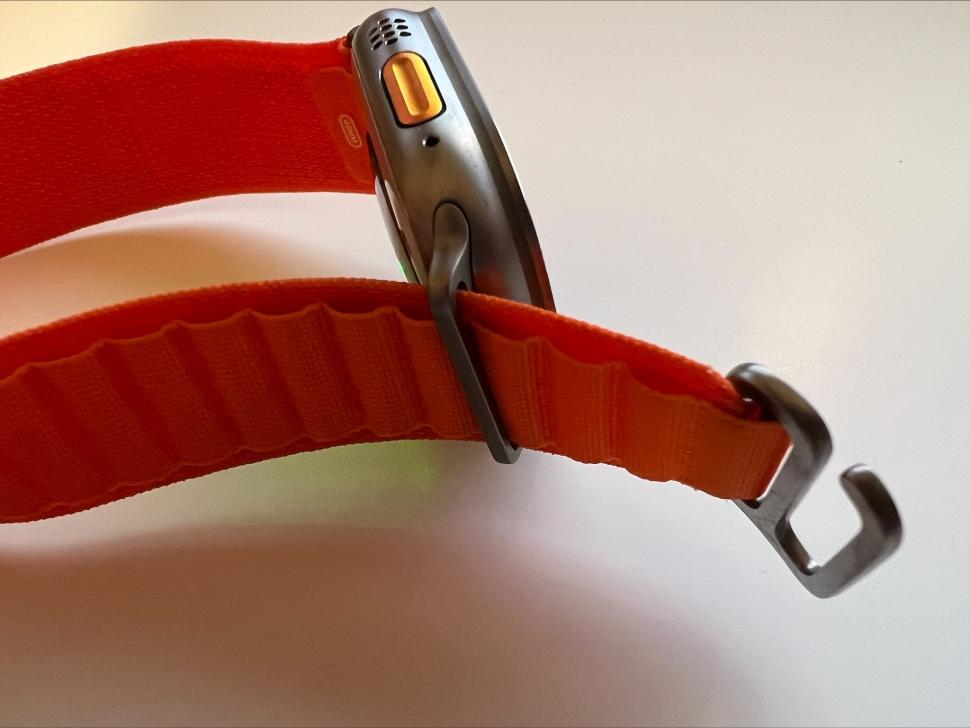

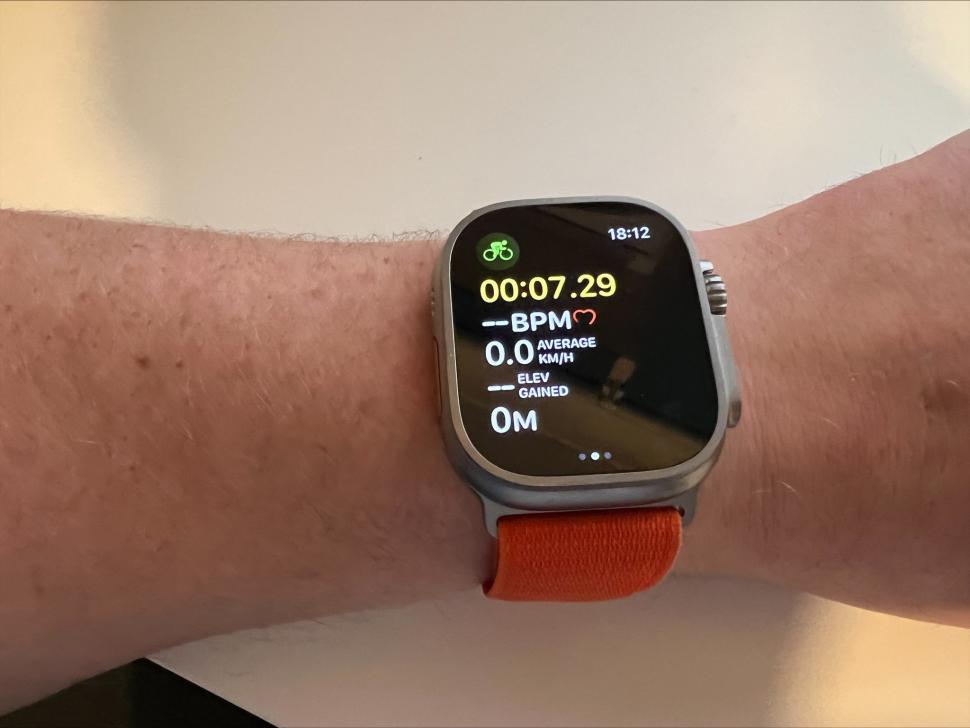
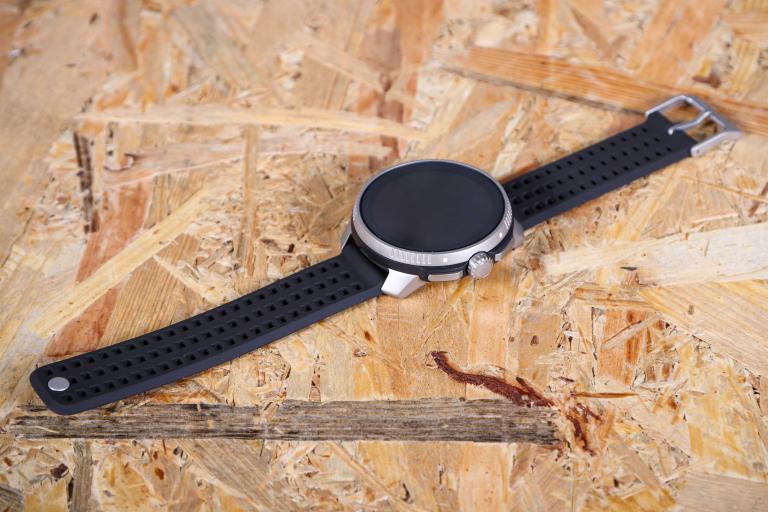
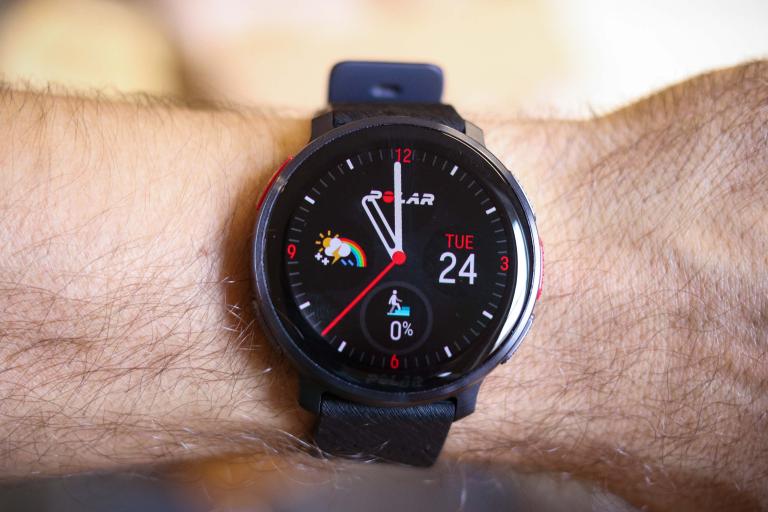

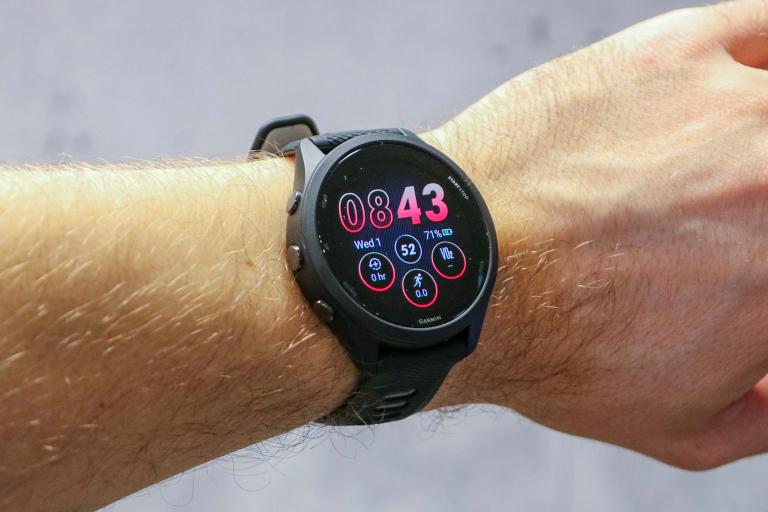
Add new comment
7 comments
I like the idea but the reality is that it won't work with my power meter and the battery life is still a bit pants.
The really big show stopper for me though is that Apple Maps can't do cycle routing outside of London and lacks offline maps. You can get a third party app to sort of fix that but it's a pretty poor experience compared to offerings from Garmin, etc.
I guess not every product it targeted at every user, that's OK. Hopefully the next generation is more aimed at cyclists.
My lizard brain thought this was a gem until my thinking brain caught up.
"Cycle tracking with retrospective ovulation estimates"
How do I see it on Strava
As a standalone fitness tracker, I get it. But where does it fit into a cycling system without ANT+? As an example. I'm back to using my Fenix 5 as my HRM while I wait on a replacement Wahoo TICKR (they really appear to be junk). I have an Apple Watch (series 4) which I wear every day, except if I'm riding now because, you know...no ANT+ to connect to my head unit.
Agree. It's baffling why they don't let Garmin/Wahoo devices make use of the heart rate data.
The Apple watch doesn't have ANT+, but doesn't really need it, as most head units will receive HRM data over bluetooth. A future software update could add the feature. I'm sure it will come in time - a long time.
Yep, why they haven't allowed a bluetooth connection is completely beyond me.
Yep, the whoop band can do it...
https://support.whoop.com/APP_FEATURES__COACHING/Heart_Rate_Broadcast/He...
But Apple aren't alone, Fitbits won't broadcast heart rate data either.
I liked the convenience of the apple watch for my commute, where I'm not bothered about stats during the ride, but wanted to log the ride to Strava. Just being able to say 'hey silly, outdoor cycling workout' is super easy (yes, you can call Siri silly and it doesn't mind!). Although, I did prefer the apple workout app to the strava watch app, and it won't sync to strava natively - I had to use a phone app called HealthFit to do the syncing.
I say this all past tense as my apple watch battery swelled up, pushed the screen off and it got caught on something; damaging the ribbon cable
Second Agree. How can you do a review on a cycling website without documenting how well it integrates with the cycling eco system?
How does it talk to head units? Which ones?
How does it share activities with Strava and Trainer Road?
My £300 garmin sends my HR to my Edge (or another head unit).
In a pinch I can even connect my lights and power meter to it. (I don't but I could).
I dont get 8/10 for a cyclist.